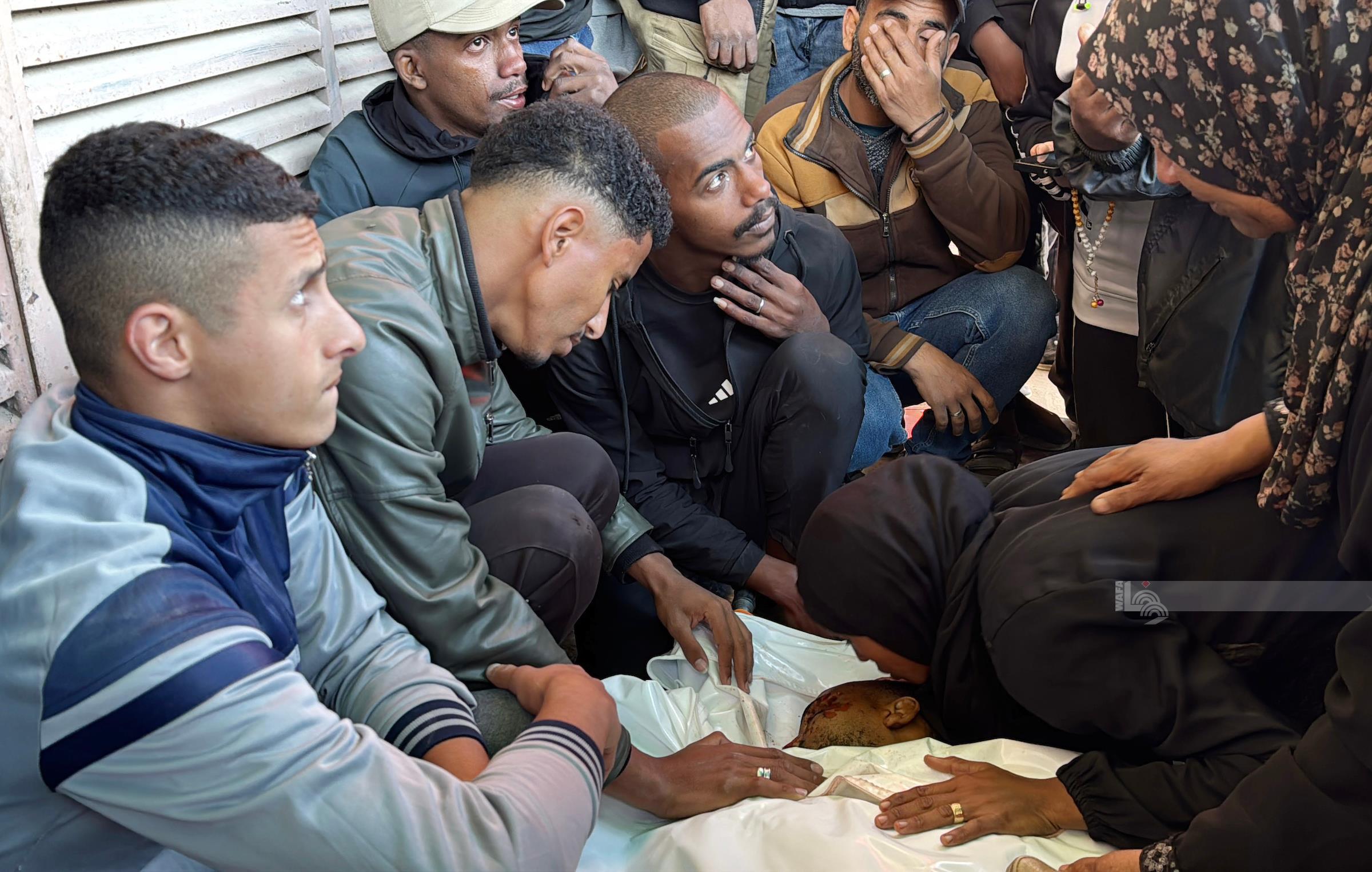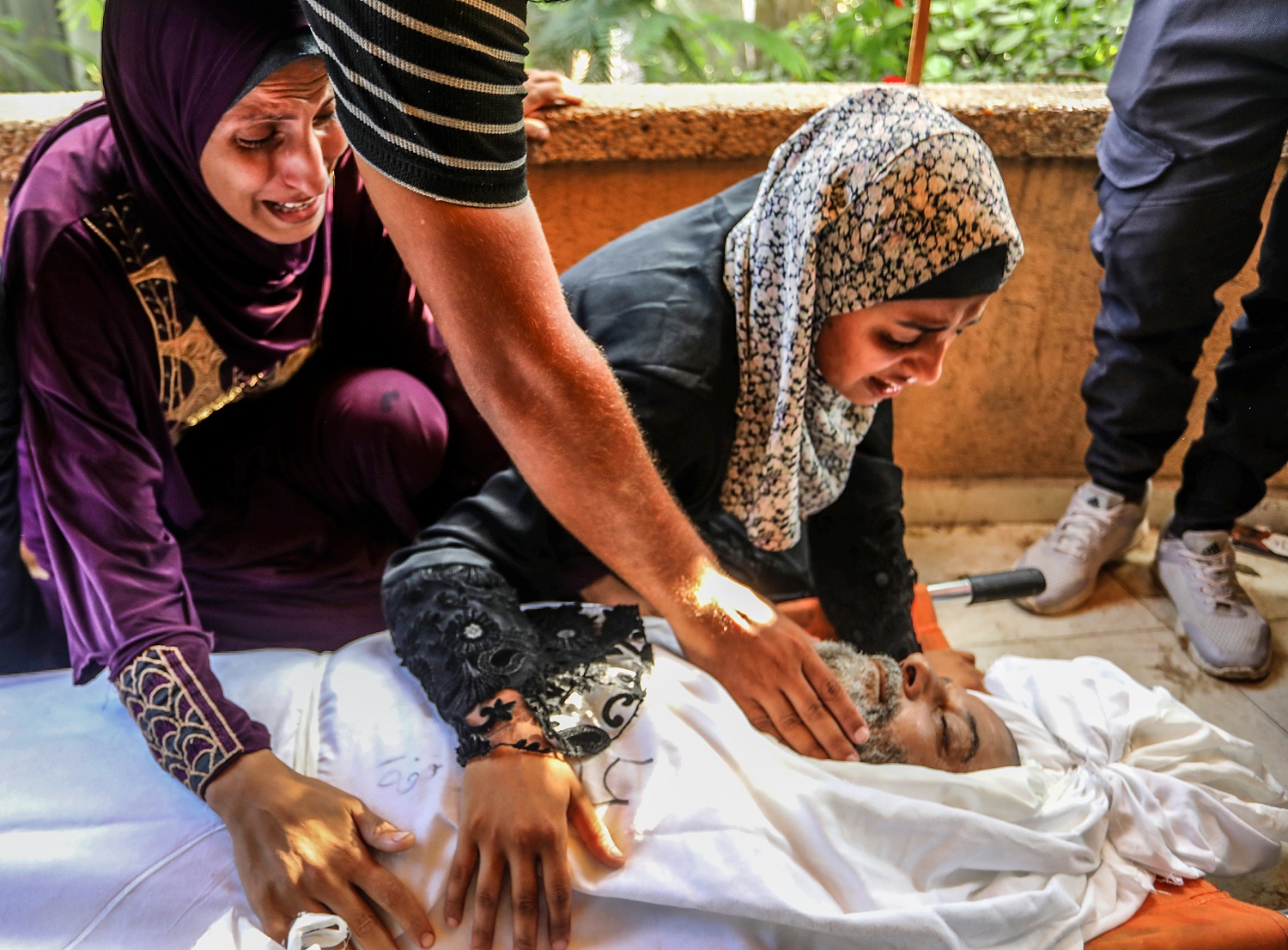Important News
- Israeli forces demolish two-story home, industrial facility in Rafat near Salfit
-

- Israeli colonists assault Palestinian woman in Masafer Yatta; army detains five in Hebron raids
-

- Israeli forces raze Palestinian land in Bethlehem-area-town to build new colonial road
-

- Senegalese PM affirms Palestine support during delegation meeting
-

- Colonists destroy water pipeline supplying six villages south of Nablus
-

- Occupation forces storm neighborhood Jenin, raid home
-

- Weather: Very hot conditions, rise in temperature
-

- Palestinian man killed by Israeli forces near Jenin
-

UNICEF Requests $14.3 Million for Emergency in OPT
GENEVA, August 25, 2006 (WAFA)- United Nations Children's Fund (UNICEF) requested $14.3 million for emergency in the Palestinian Occupied Territory (OPT).
In an appeal launched Friday, UNICEF said that its CAP was originally budgeted at $8.4 million based on the needs assessment framework completed in November 2005. In light of recent developments in the humanitarian context, additional funds for the emergency response amount to $14.3 million, for a total requirement of $22.7 million. As of 20 August, UNICEF said donors had contributed some $ 10.8 million, or around 47% of the appeal. Approximately $4.2 million is in the pipeline but has not yet been confirmed.
It added that Key issues facing children are: High death toll among children: 44 killed since outbreak of hostilities, almost a quarter were below 10 years old. Some 335 children remain in detention facilities; stocks of essential medicines and disposables are at critical levels in Gaza; electricity and water shortages, along with reductions in services, are hurting children; children are living in an environment of extraordinary violence, insecurity and fear; demand for psychosocial assistance has risen significantly; severely curtailed opportunities for safe play and recreation over summer holidays; funding gap of $8 million for Back-to-School campaign, health, water and sanitation.
The appeal mentioned that life has gotten much worse for children since hostilities broke out in Gaza. "The 39 children killed in July alone is the second highest child death toll since the beginning of the Intifada in September 2000. "
While conditions have long been precarious in Gaza, the current escalation of violence is debilitating the Strip. Supplies of electricity, water and fuel are scarce and unreliable. Stocks of essential medicines are at critical levels, and health facilities struggle to provide adequate care. Power shortages raise concerns over food and water safety. Commodities cost more. The spread of communicable disease remains a potent threat due to piling garbage and overflowing sewage.
In the West Bank, UNICEF added, residents live with military incursions and onerous restrictions to movement and access. The pressure on basic services is mounting, and tensions are flaring. "Across OPT 70% of households fall below the poverty threshold; in Gaza, 70% cannot meet their daily food needs without help. "
Caregivers report signs of distress among children, and psychosocial counseling teams are responding to a substantial increase in requests for assistance. Children are afraid to play outdoors, and with schools closed and limited opportunities to engage with their peers, most have been confined to their homes. Going back to school in September is critical to bringing some normalcy back to their lives.
UNICEF Stated the following issues:
Health, Nutrition, Water and Sanitation
Essential drugs and disposables are in short supply. In the West Bank, movement and access restrictions, fuel shortages, and vehicle breakdowns hamper health care delivery in isolated areas. In Gaza, all hospitals and half of primary health care facilities now run on generators. Immunisation services have been adjusted around operational restrictions. Higher pressure on the health system is resulting in lower service delivery.
Malnutrition is rising; anemia remains a severe public health challenge; and there are signs of higher diarrhea incidence among children, particularly in Gaza. Anecdotal evidence points to rising cases of skin allergies.
Damage to the water infrastructure is extensive, and most families in urban areas have only 2-3 hours of water per day. Water safety is a growing concern.
Education
Most teachers have gone without paychecks for almost half a year. Even though the PA is cutting school fees from US$11 to US$5, many families, notably those with more than one child, will struggle to buy the uniforms and supplies their children need when schools re-open in September.
Education quality continues to be a major challenge. Schools lack basic materials, and few teachers have the skills set needed to create child-friendly learning environments. Levels of violence in schools are rising, along with drop out rates, particularly for older children. Outside classrooms, students have few opportunities for sports and recreation.
Adolescents
The conflict has had a particularly damaging impact on adolescents, who comprise a large, vulnerable and volatile group. Those most directly exposed to violence have the greatest need for productive learning and recreational opportunities.
At least two-thirds of adolescents in the West Bank and Gaza do not have safe spaces for recreation. Most of the 300 youth clubs across OPT lack funding, and are poorly managed and equipped. Programs offered are usually limited to simple sporting activities without proper equipment.
Adolescents who are two or three levels below their normal grade often end up dropping out of school and joining the unskilled labour market. Worsening socio-economic conditions point to the likelihood that the numbers of adolescents vulnerable to abuse, violence, and exploitation will increase.
Child protection
The number of children killed in July alone (39) is the second highest number of children killed since the beginning of the Intifada in September 2000. This more than quadruples the number of children killed in June. Some 335 children continue to be held in detention facilities.
Children are showing signs of acute stress, due in particular to shelling and sonic booms. These include anxiety, sleeping disorders, nightmares, aggressive behaviour and withdrawal. Prolonged exposure can leave lasting impact on child development. Many parents say they feel unable to support their children because they themselves are overwhelmed by economic and conflict-induced stress. Requests for assistance from UNICEF-supported psychosocial teams have risen significantly.
Although children are on summer break, most are confined to their homes because of the fighting. Activities they would normally have looked forward to have been canceled due to lack of funding, further compounding their frustration and isolation.
(20:30 P) (17:30 GMT)










